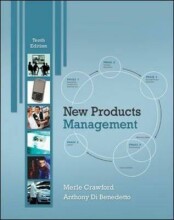1Jv10 Summary
- This + 400k other summaries
- A unique study and practice tool
- Never study anything twice again
- Get the grades you hope for
- 100% sure, 100% understanding
Read the summary and the most important questions on 1JV10 Summary
-
1 Topic 1: Job analysis and work design
-
1.1 Work Design Influences: A Synthesis of Multilevel Factors that Affect the Design of Jobs
This is a preview. There are 5 more flashcards available for chapter 1.1
Show more cards here -
Higher level external influences:
- Internal/global influences
- National influences
- Occupational influences
- Internal/global influences
-
Job crafting (bottom- up):
the process through which employees change the task-related or social boundaries of their job so as to increase work meaning or decrease stressful aspects -
1.2 Chapter 3: The models that made job design
This is a preview. There are 10 more flashcards available for chapter 1.2
Show more cards here -
The DCSM has two key hypotheses:
- The strain hyptohesis:
- job control and support can offset the detrimental effects of job demands on health
- The active learning hypothesis:
- assumes that control and support allow active coping which refers to coping directed at solving problems caused by high demands
-
Mental health is conceptualized in terms of job-related affective well-being along three dimensions:
Displeasure-to -pleasureanxiety-to -comfortdeppresion-to -enthusiasm
The absence of certain job characteristics impairs psychologicalwell-being , whereas their presence initially has a beneficial effect on affectivewell-being -
The VM is situation-centred in that it focuses on the association between job characteristics and mental health. Three characteristics or individual characteristics are viewed as possible moderators on the effects of job characteristics on mental health:
- Values
- abilities
- baseline mental health
- Values
-
Contemporary sociotechnical systems thinking:
Systems work best when social and technical aspects are jointly optimized -
1.3 Chapter 4: current theoretical perspectives in work psychology
This is a preview. There are 13 more flashcards available for chapter 1.3
Show more cards here -
Ky assumption 4 (JD-R):
- resources particularly influence motivation or engagement when demands are high
- Coping: the constantly changing cognitive and behavioural efforts to manage specific demands that are appraised as taxing
- The hypothesis suggests that resources become most salient under highly demanding conditions.
-
The demand induced strain compensation model:
This model focusses particularly on the issue of the match between demands, resources, and related outcomes. The Demand-Induced Strain Compensation Model tries to unify principles that are common to classic models, and claims the be more comprehensive. -
1.4 Chapter 17: Job crafting
This is a preview. There are 8 more flashcards available for chapter 1.4
Show more cards here -
Four individual needs cause the motivation for job crafting:
-need to take control over certain aspects of their work to avoid negative consequences such as alienation from work.
-employees are motivated to change aspects of their work to enable a more positive sense of the self to be expressed and confirmed by others.
-job crafting allows employees to fulfil the basic human need for connection to others.
-individuals craft their jobs in order to create conditions in which they can work more healthily and be more motivated. -
idiosyncratic deals (i-deals):
employees negotiate with their employers about their work conditions or employee participation in job redesign
- Higher grades + faster learning
- Never study anything twice
- 100% sure, 100% understanding
Topics related to 1Jv10 Summary
-
Job crafting
-
Work times and recovery from work - Recovery from demanding work hours
-
Safety and behavioral risk management - safety at work
-
Safety and behavioral risk management - Managing psychological risks in the workplace
-
Decision makinfg in teams and organizations
-
Vitality and occupational health - Sickness absence and sickness presence
-
Labour Relations, Fairness and Negotiations - The psychology of negotiation
-
Designing (online) talent management interventions































